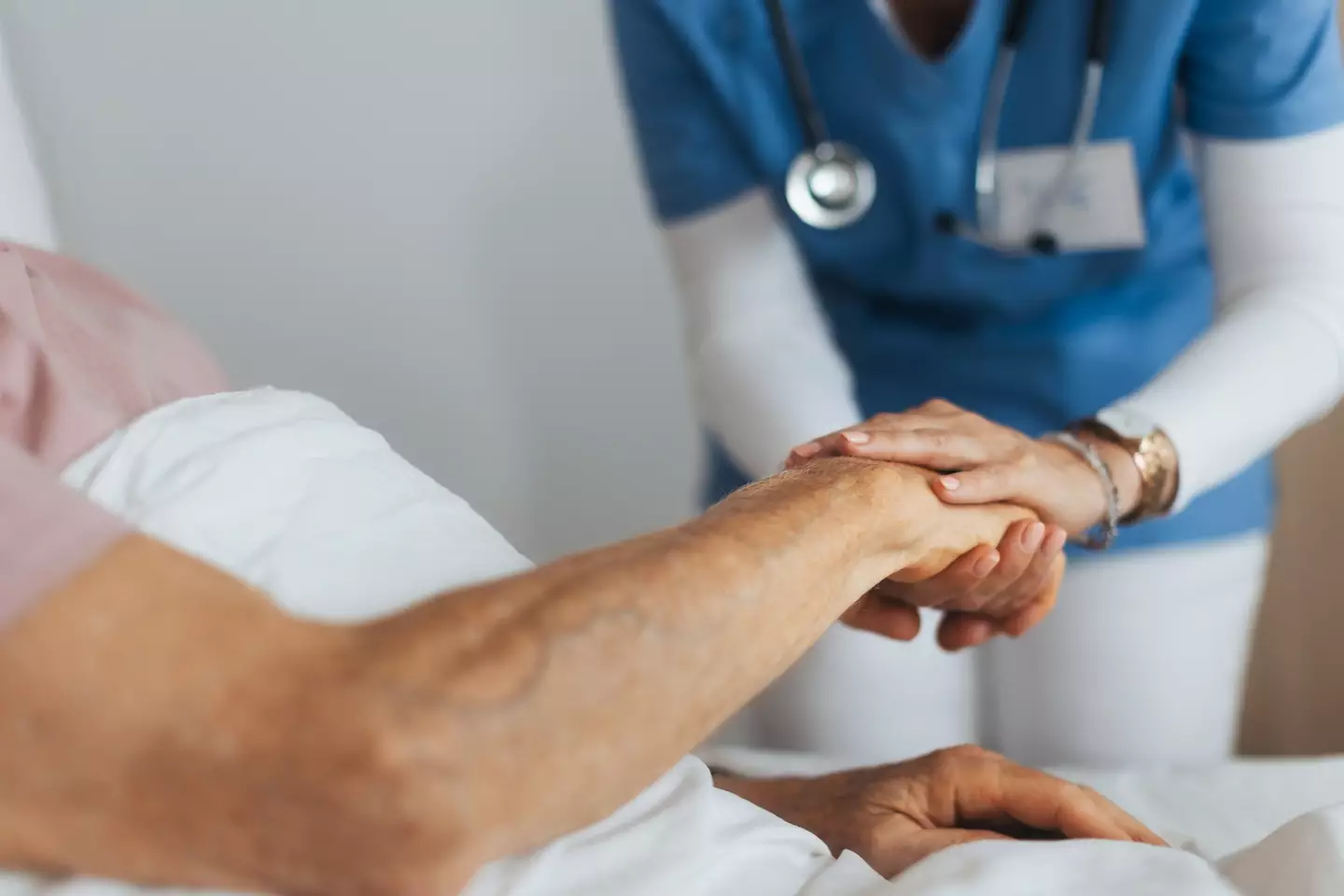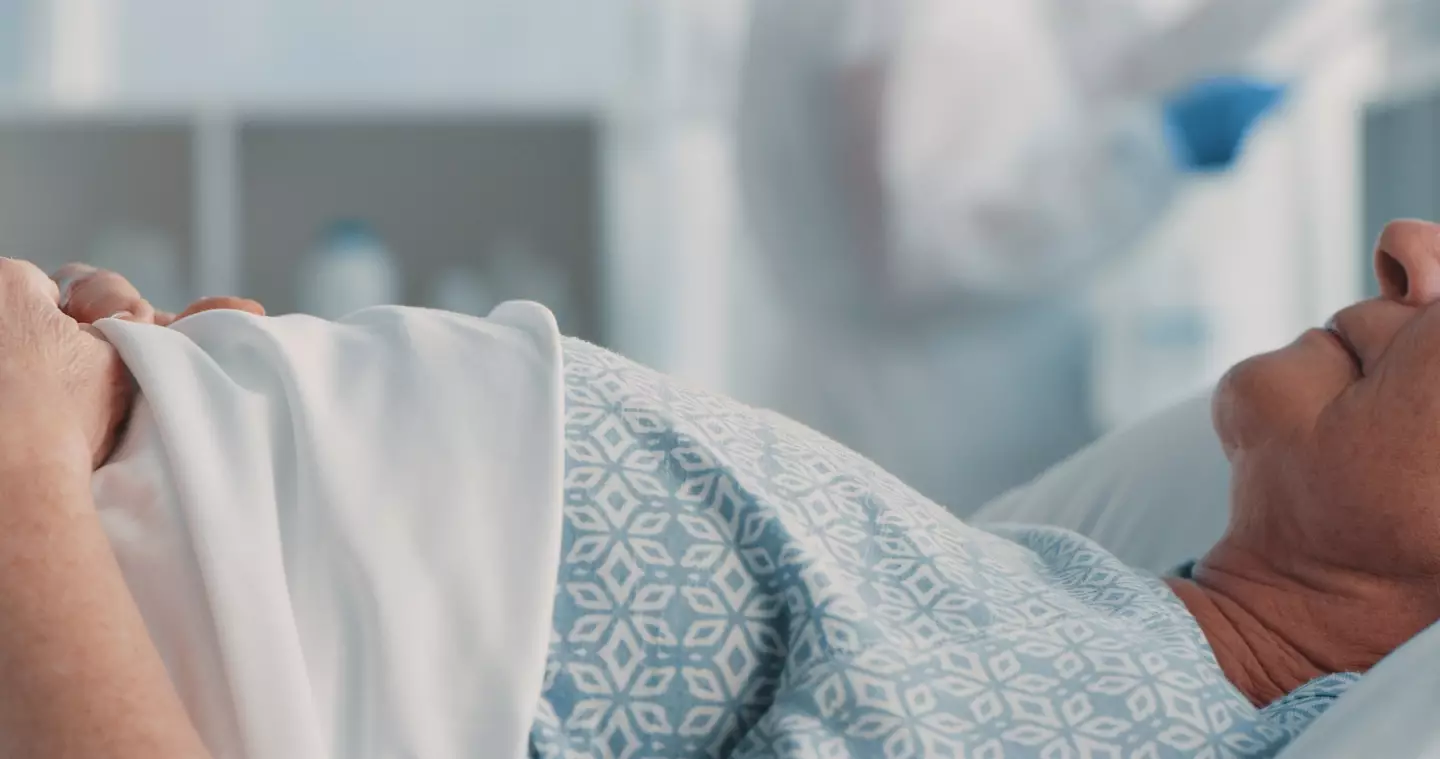
A doctor has lifted the lid on what really happens when we die, as she says everyone follows a very 'similar pattern'.
Kathryn Mannix, a palliative care doctor, has suggested the end may not be so scary after all as she took to a TED Talk to demystify the experience of death.
The With the End in Mind author says she believes a better understanding in society about the final breath can change how we feel about it.
She kicked off her talk by saying humans 'are the only animals contemplating their own mortality' and despite having done so throughout history, we have 'somehow, in the very recent past, lost the practical wisdom of what happens as people die.'
Advert
Dr Mannix then spoke about the passing of a patient who had been a member of the French Resistance during the Second World War and settled in England after marrying a British airman.

The woman was concerned that if she were to die in agony, she might 'despair in God' which according to her French Roman Catholic beliefs would stop her passage into heaven, so asked a doctor for comfort.
"This was a profound existential distress," she continued. "And my boss said, 'We need to go and talk to her, and you should come.'"
Dr Mannix said she was just 26-years-old at the time and the conversation she heard 'changed my life.'
The doctor said to the patient: "The thing that's really interesting, Sabine, is that as people are dying, it doesn't really matter the illness is they're dying from.
“The pattern of events is very similar. We see people becoming more and more tired. It's harder and harder for them to find the energy to do things. In fact, they recharge their energy not so much by eating and drinking, but by sleeping."

The doc went on to explain how patients nearing the end of their life can't easily be woken up.
"They're not just asleep," he continued. "They're actually unconscious. And when they waken, they tell us they've had a lovely sleep. It turns out that human beings don't recognize when we become unconscious.
“And when the brain is unconscious, the only part of it that's still working is the part that's working their breathing."
She said her boss told the woman that regular breathing turns to 'reflex automatic breathing', where cycles for deep breaths become 'shallower and shallower' followed by cycles of fast breathing that become slower.
"The person can't feel their throat. They don't notice if they breathe out through their voice box, making noise families might think that they're sighing or groaning, or uncomfortable."

The doc said it's not painful for the patient, but can be upsetting for families.
He reassured her further: "One of the things that we'll do, Sabine, if your nieces and nephews are here, is we will make sure we explain to them what is happening to you."
He finally said about the last breath: "During, usually, one of those phases of slow breathing, there'll be a breath out that just isn't followed by another breath in. There is nothing special about the last breath.
"It's so not like in television or in cinema. There's no rush of pain at the end. There's no sudden panic. There's no feeling of fading away."
The patient then lay back, closed her eyes and 'in her own inimitable and aloof way, she told us that we were no longer required,' the doctor added.
Dr Mannix concluded: "We can describe the process of ordinary human dying and it's as much a process as the process of giving birth it. It has stages. I've gone on in my career in palliative care to have that conversation thousands of times, countless times."
If you have experienced a bereavement and would like to speak with someone in confidence, contact GrieveWell on (734) 975-0238, or email [email protected].
Topics: World News, Health, Life